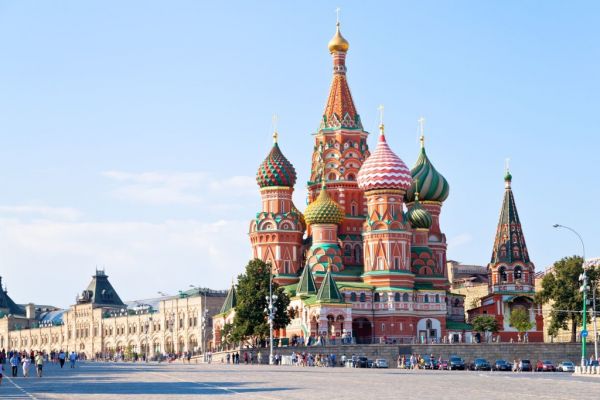Russian retail sales slumped for a third month and real wages plunged the most since 1999, highlighting the discrepancy between improving markets and the plight of the consumer as the economy enters its first recession in six years.
Wages adjusted for inflation fell 9.3 percent in March from a year earlier after an upwardly revised 7.4 percent drop a month earlier, the Federal Statistics Service in Moscow said in a statement on Friday. Retail sales fell 8.7 percent, compared with a revised drop of 7.2 percent in February. The median estimates of economists surveyed by Bloomberg were for decreases of 10.3 percent and 8.6 percent.
The deepening downturn belies growing confidence by officials including President Vladimir Putin that the Russian economy has already put the worst behind it. While financial markets are recouping losses suffered last year, currency gains are failing to sustain spending.
“The weakness of activity data is at odds with the increasingly upbeat comments from government officials,” Liza Ermolenko, an economist at London-based Capital Economics Ltd., said in an e-mailed note. “Data for March painted a pretty gloomy picture of the Russian economy.”
Job losses and the fastest inflation in 13 years continue to choke consumption, which accounts for about half the economy, sending sales tumbling at companies from electronics retailer M.video to automaker OAO AvtoVAZ, the producer of Lada cars.
Russia’s ‘Everything’
“Retail sales have been everything for Russia’s economy since the 2000s as it turned into a private consumption driven economy,” Vladimir Miklashevsky, a strategist at Danske Bank A/S in Helsinki, said by e-mail before the release. “A stronger ruble means we could still see some positive surprise and a less deep contraction in retail and the economy.”
Stabilizing oil prices and speculation the U.S. and Europe won’t ratchet up sanctions over Ukraine have turned the ruble into the best-performing currency worldwide this year with a 16 percent gain. The currency slipped 4.5 percent against the dollar at 17:52 p.m. in Moscow after reaching 4 1/2-month peaks this week.
Real disposable incomes dropped 1.8 percent from a revised 1.6 percent decline a month earlier, while fixed-capital investment fell 5.3 percent, the service said. Economists predicted decreases of 1.4 percent and 7.1 percent.
Unemployment edged up to 5.9 percent in March from 5.8 percent, matching the median estimate in a separate Bloomberg survey.
More Easing?
The central bank has turned to monetary easing this year after increasing the benchmark interest rate six times in 2014, including an emergency move to 17 percent last December. The ruble’s appreciation gives the Bank of Russia room to cut rates further if there are no other shocks to the economy, Governor Elvira Nabiullina said in Washington Thursday.
“At current rates, companies will most likely cut investment projects and pay back debt instead of refinancing,” Vladimir Kolychev, chief economist for Russia at VTB Capital in Moscow, said by phone before the report. “The situation with investments may improve in the second half of this year or the first half of the next year.”
Bloomberg News, edited by ESM














